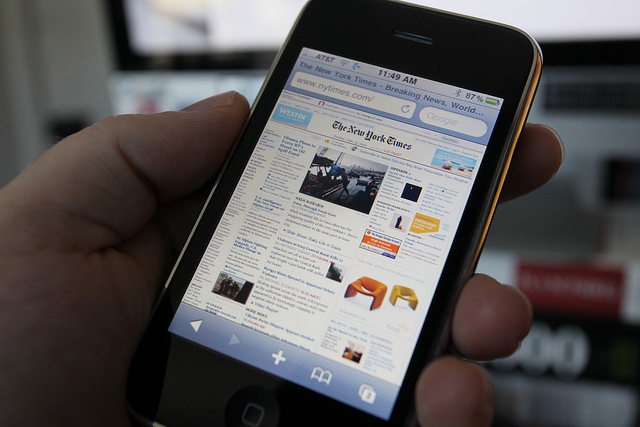Biz: The Boston Globe starts up its own Web site — wait, didn’t they have one?
- We’ve never had The Boston Globe have its own front door in the digital space. It’s always been integrated with Boston.com. This was an opportunity to build something brand-new and to have it front and center and really do justice to the brand promise The Boston Globe offers to its readers.
- Boston Globe publisher Christopher M. Mayer • On the paper’s launch of its own Web site this morning — a paywall-laden one that smartly separates the company’s newspaper content from Boston.com content that might work better on the Web. Boston.com is paywall-free and still serves breaking news, blogs and the whole bit. Bostonglobe.com focuses on the newspaper itself. It’s an interesting separation and we’re curious to see how it works out for them. The Boston Globe’s parent, the New York Times Company, famously started up a successful paywall experiment for the mothership paper. (Quote from a paywall-laden article, but there’s free registration for the next couple weeks; the source article links to the free Boston.com piece.) source
